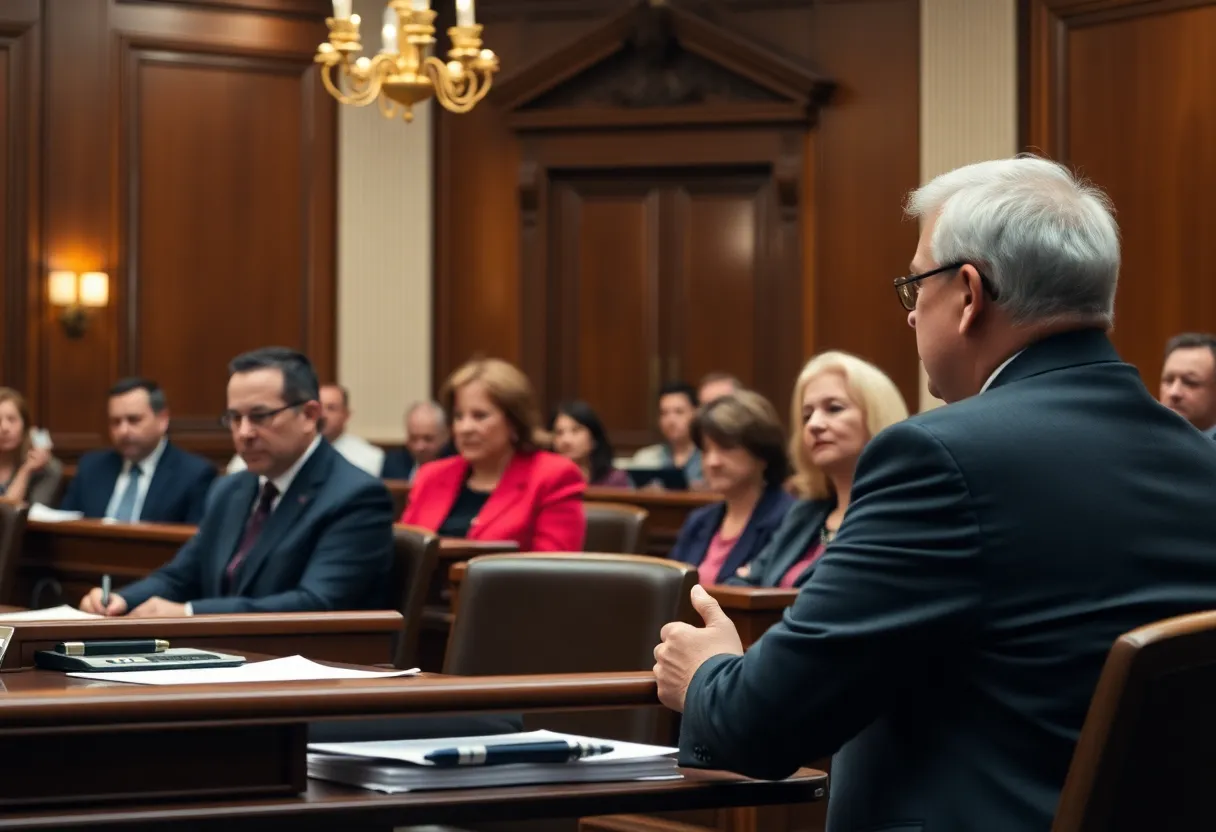News Summary
Montana’s lawmakers are reviewing House Bill 803, a proposed change that may impact asbestos-related claims, particularly for victims of mesothelioma.
Legislative Changes Loom Over Asbestos Claims in Montana
The fight for justice among asbestos exposure victims in Montana faces a significant turning point as lawmakers currently review House Bill 803. This proposed legislation is intended to modify the legal framework surrounding asbestos-related claims, particularly impacting those suffering from devastating diseases like mesothelioma.
What House Bill 803 Entails
Under the provisions of HB 803, plaintiffs are now required to disclose any previous claims made to asbestos trusts. This stipulation raises the bar when it comes to naming defendants in asbestos-related lawsuits, demanding stringent evidentiary standards before an entity can be held accountable.
The bill’s sponsor, a representative, has characterized the changes as “modest reforms.” The intent behind these alterations is said to focus on diminishing fraudulent claims and enhancing the efficiency of court proceedings, aiming to streamline the legal process. Supporters include business interests like the Montana Chamber of Commerce and the U.S. Chamber of Commerce, citing the need to alleviate burdens on businesses from litigation.
Concerns from Opponents
However, local residents and legal advocates are voicing serious concerns. Critics argue that the introduction of HB 803 could significantly hinder the ability of victims to seek the compensation they desperately need. Notably, a local lawyer highlighted that the bill could prolong court processes, ultimately disfavoring families grappling with the traumatic reality of asbestos-related illnesses.
One poignant story comes from the family of George “Herb” Kerr, a mesothelioma victim who passed away before securing legal testimony. His case starkly illustrates the potential fallout of the legal changes proposed in HB 803, exemplifying how such delays could further harm suffering families.
The Situation in Libby and the Historical Context
The controversy surrounding House Bill 803 is notably set against the backdrop of Libby, where substantial asbestos contamination has resulted from the operations of the W.R. Grace vermiculite mine. This mine, operational from 1963 to 1990, is notorious for releasing a particularly harmful form of asbestos into the environment, leading to countless residents developing severe health issues and dozens of reported deaths.
In the shadow of this history, local residents, including community members impacted by the mine’s legacy, have criticized the legislative changes as corporate-friendly reforms that could allow major companies to sidestep responsibility for their role in the public health crisis.
Statistical Insights and National Trends
Recent reports indicate that out of approximately 2,700 claims submitted to the asbestos trust, only a mere 40 have been successfully compensated. These statistics add tension to discussions surrounding the legitimacy of claims, raising questions as to whether rampant fraud exists within the Montanan judicial system.
This scrutiny of claims is not unique to Montana; across the United States, states like Georgia, Missouri, and Arkansas have also seen legislative attempts to impose strict limits on damages and filing timelines for personal injury lawsuits, particularly affecting asbestos claims.
Impending Legal Trials and Community Impact
As HB 803 navigates its way through the legislative process, the case against BNSF Railway raises critical implications for future trials. The company is appealing an $8 million jury verdict related to its negligent actions which led to exposure of asbestos in Libby. The consequences of this appeal may have a significant impact on other pending trials and the individuals whose lives have been irrevocably altered by their exposure to this toxic material.
Locals are hopeful that legislative voices will heed their concerns and the complexities of the health crises plaguing Libby and its inhabitants. As the conversation around HB 803 progresses, many are left to ponder whether this bill will indeed foster efficiency in the legal system or merely serve to protect corporate interests at the expense of those facing life-threatening illnesses.
The Battle for Justice Continues
With proposed amendments, including one that would exempt Libby’s asbestos cases from HB 803, the fight for fair compensation for victims remains fraught with uncertainty. As observed, the stakes are extraordinarily high—lives hang in the balance, and the legacy of asbestos exposure continues to haunt Montana families.
This saga of legislative shifts, corporate responsibility, and the enduring struggle for justice is a riveting chapter in the ongoing narrative surrounding asbestos litigation and the devastating health consequences it imposes on communities nationwide.
Deeper Dive: News & Info About This Topic
HERE Resources
Asbestos Abatement Underway at Fairmont Southampton Hotel
The Hidden Threat of Mesothelioma: A Looming Crisis for Veterans and Workers
Annual Asbestos Litigation Year in Review Unveils 2024 Trends
EPA’s Recent Asbestos Regulations: A Step Forward or Step Back?
Breakthrough in Mesothelioma Treatment: New Hope for Patients
Judge Rejects J&J’s $10 Billion Talc Settlement: A Major Blow to Plaintiffs
Breakthrough in Mesothelioma Treatment: GSK’s Zejula Shows Promising Results
Newhaven Enterprise Zone Boosts Cultural Arts Fund
Tragic Loss: 85-Year-Old Woman Succumbs to Asbestos-Related Disease
Johnson & Johnson’s Legal Struggle Over Mesothelioma Research Intensifies
Additional Resources
- Asbestos.com: Legislative Changes Threaten Mesothelioma Payouts
- Wikipedia: Mesothelioma
- Daily Montanan: Claims Court Endorsed by Montana Senate
- Encyclopedia Britannica: Asbestos
- FreightWaves: BNSF Railway Appeals $8M Verdict for Asbestos-Related Deaths
- Google News: Asbestos Claims
- AP News: BNSF Railway Asbestos Lawsuit
- Google Search: Asbestos Litigation



















